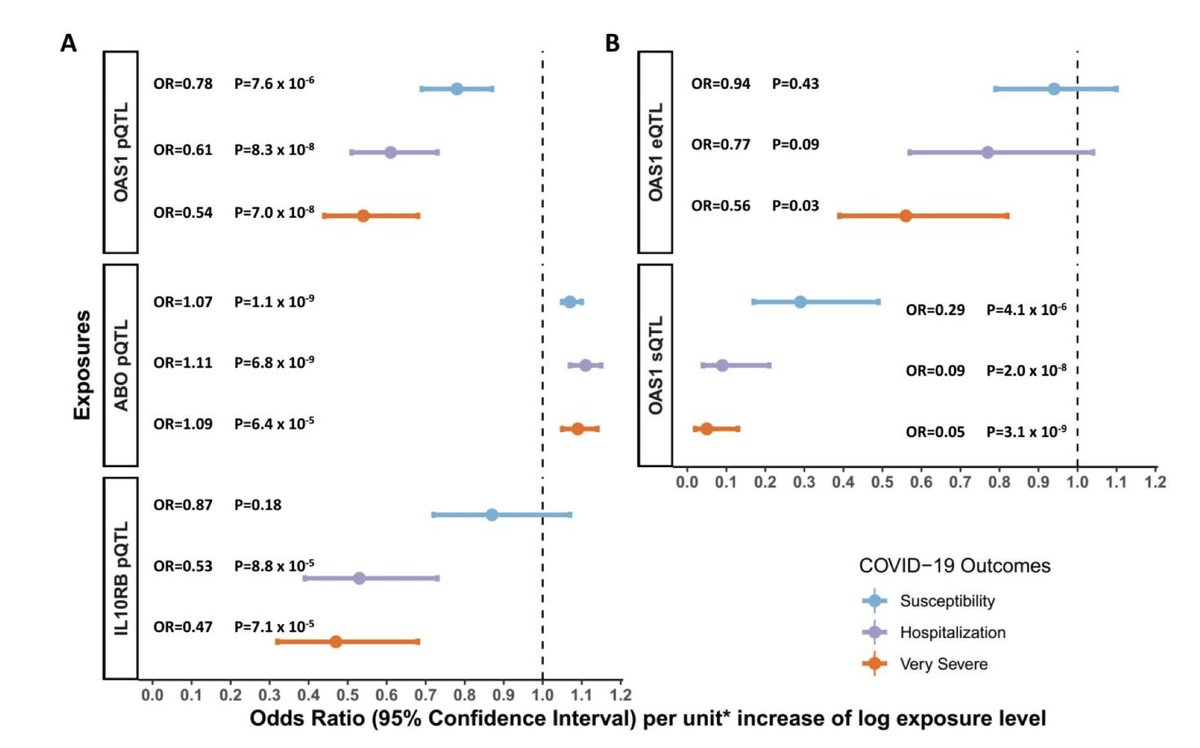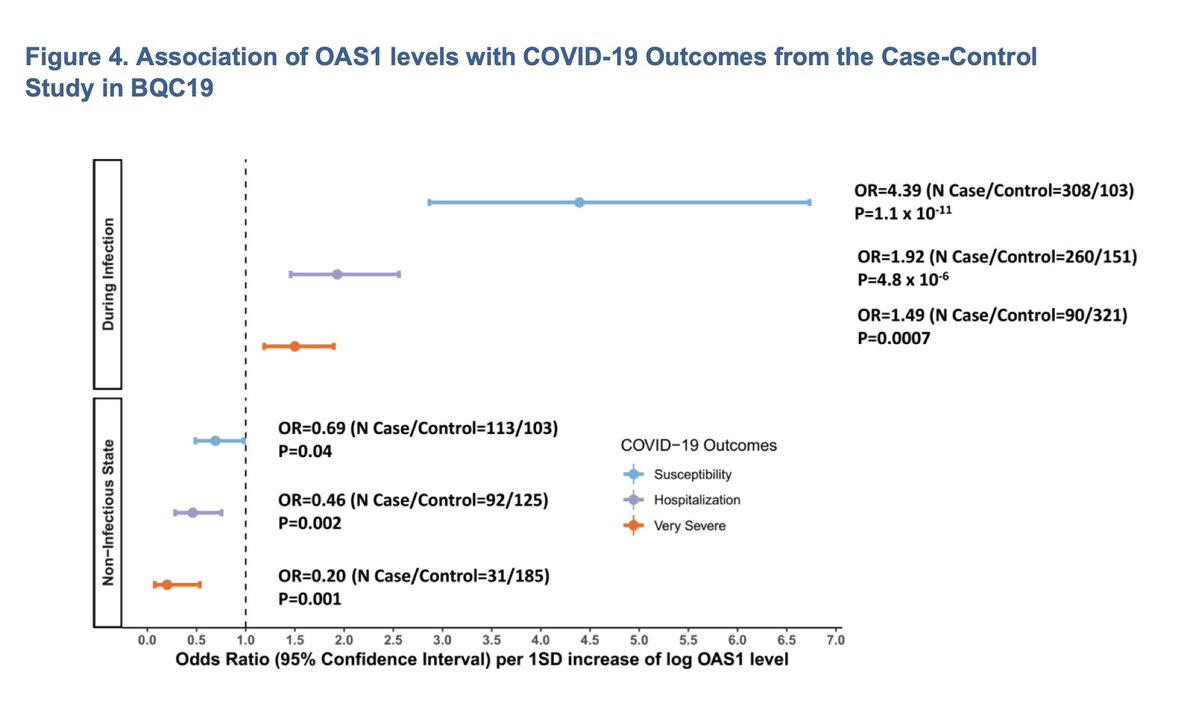Why are some asymptomatic and others in the ICU with severe #COVID19 ?
Here we provide updated pre-print evidence that a form of a protein derived from Neanderthals protects against #COVID19 susceptibility and severity.
1/n
https://www.medrxiv.org/content/10.1101/2020.10.13.20212092v4
Here we provide updated pre-print evidence that a form of a protein derived from Neanderthals protects against #COVID19 susceptibility and severity.
1/n
https://www.medrxiv.org/content/10.1101/2020.10.13.20212092v4
Using #MendelianRandomization to test if 931 circulating proteins influence COVID19 , we found the that increased OAS1 levels protect against susceptibility and severity.
Eg. OR = 0.54; P = 7E-8 in 4,336 cases of death or ventilation compared to 623,902 controls
2/n
Eg. OR = 0.54; P = 7E-8 in 4,336 cases of death or ventilation compared to 623,902 controls
2/n
Digging deeper, we found that protection seems to be afforded by an isoform of OAS1 which was introduced into the European population by Neanderthals.
Due to a splicing variant that leads to a more active form OAS1 isoform that degrades viral RNA.
3/n
Due to a splicing variant that leads to a more active form OAS1 isoform that degrades viral RNA.
3/n
This isoform is present in sub-Saharan Africans, but was lost when modern day Europeans migrated out of Africa. When Europeans mated with Neanderthals, the variant was then re-introduced into the European population, where it underwent positive selection.
4/n
4/n
Next, measuring OAS1 levels in patients with #COVID19 during the course of their infection, we found that individuals with higher OAS1 levels in a non-infected state had lower odds of susceptibility and severe #COVID19
Providing, two separate lines of evidence implicating OAS1
Providing, two separate lines of evidence implicating OAS1
These data provide an example of why Neanderthal ancestry matters in COVID19 outcomes.
A great collaboration led by Sirui Zhou @GBL_Unit @TomokoNakanish1 @forgetta Hugo Zeberg Daniel Kaufmann, and others
6/n
A great collaboration led by Sirui Zhou @GBL_Unit @TomokoNakanish1 @forgetta Hugo Zeberg Daniel Kaufmann, and others
6/n
What can be done with this knowledge?
Medications already exist that seem to increase OAS1 levels. These should be prioritized for testing in randomized controlled trials.
7/n
Medications already exist that seem to increase OAS1 levels. These should be prioritized for testing in randomized controlled trials.
7/n
This is pre-print evidence, so should be read with caution and several other important limitations are listed in the paper.

 Read on Twitter
Read on Twitter



